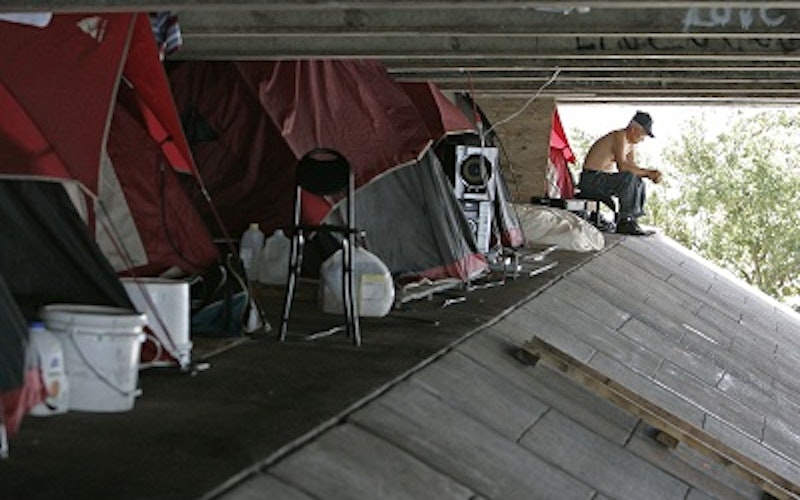
Culture At Large
Sex offenders and modern leper colonies
There is much for Christians to love about Miracle Village. Founded by Matthew 25 Ministries to help sex offenders reintegrate into society, this small rental community is situated in the middle of an old sugar cane plantation in southern Florida - a haven for an especially difficult population that many restorative justice ministries either can't or won't serve. The people at Miracle Village courageously offer sex offenders a place to call home even as the rest of society tells them they no longer belong.
Florida is notoriously tough on registered sex offenders. State and local ordinances impose harsh restrictions on where an offender may reside, and places like Miami-Dade County have even attracted media attention for literally forcing sex offenders into homelessness. As this 2009 ABC Nightline feature reports, over 70 offenders in Miami reluctantly called the makeshift tent-village at the bottom side of the Julia Tuttle Causeway Bridge their home.
In a way, then, Miracle Village offers a decidedly restorative alternative. Here residents at least enjoy the basic privileges of civilized life. Here they are treated with compassion and dignity. In a state that seems bent on legislatively forcing sex offenders to the farthest fringes of society, this isolated community is a beacon of hope, a prophetic testimony to the healing power of the cross.
Nevertheless, Miracle Village and the Miami tent-village share something unfortunate in common. Both are, in Old Testament terms, “outside the camp." Both represent a form of banishment. Both capitulate to the secular world's demand that sex offenders be put away - like the lepers of ancient Israel - lest they contaminate others with their disease. Wholly self-sufficient and located miles away from any neighboring communities, Miracle Village may be the preferable accommodation, but it is an accommodation nonetheless.
Lepers are victims; criminals are not. But there are some telling similarities.
Please don't misunderstand me. I'm not suggesting that sexual offenders are inculpable for their crimes, nor do I believe that reasonable sanctions for public safety are inappropriate. Lepers are victims; criminals are not. But there are some telling similarities.
In ancient Israel, leprosy rendered an individual “unclean” and therefore unfit to reside where God's holiness dwelt. Such a person might suffer a lifetime of banishment, relegated to a camp outside the city gates, treated contemptuously by those who assumed her to be under God's curse for some horrible sin. Lepers were compelled to keep a safe distance from “clean” people and, as a precaution against accidental exposure, they had to shout, “Unclean! Unclean!” as they went about their business in public.
Leaving aside the question of “just deserts” for the moment, might we at least agree that Florida's sex offender ordinances create a similar circumstance for a new breed of “lepers” today?
When Jesus encountered lepers during His ministry, He didn't shy away from contact with them. He healed and restored them. He freely associated with sinners and cast aspersions on the self-righteous. And when He bowed His head in death at Calvary, He abolished the claims of the old covenant purity and moral laws, restoring repentant sinners and lepers alike as full citizens in the kingdom of God.
So Miracle Village is an important step in the right direction. But it's only a step. Christians must be wary of acquiescing to the world's insidious movement to sequester its “throwaway” citizens. We must continue to champion the Kingdom vision, where places like Miracle Village simply aren't needed.
Topics: Culture At Large, News & Politics, Justice, North America